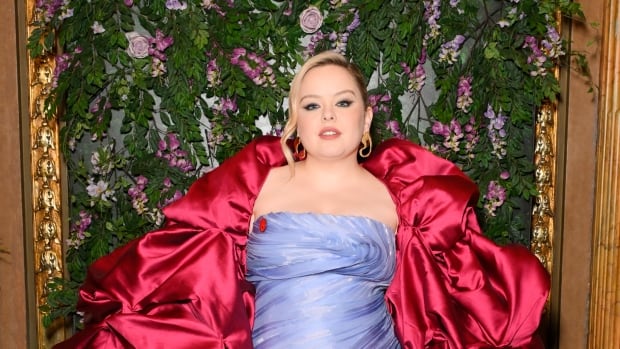“Nicola Coughlan, the talented actress known for her role as Penelope Featherington in Netflix’s beloved series Bridgerton, shared a candid revelation during a recent Q&A session in Dublin. The discussion steered towards the challenges she faces as a woman with what society perceives as ‘perfect breasts.’ Despite receiving accolades for her portrayal in the upcoming season, Coughlan opened up about the scrutiny and criticisms she faces as a curvier actress in the industry.
Body Positivity in Bridgerton:
As the highly anticipated third season of Bridgerton is set to premiere, fans are excited to see Penelope’s evolution from an introverted character to a leading lady. The shift in representation, especially for larger body types, has garnered praise for promoting body positivity and challenging traditional beauty standards. Social media has been abuzz with users celebrating the validation they feel after watching Penelope being portrayed as romantic, desired, and sexy.
Representation Matters:
Shauna Pomerantz, an expert in media studies, emphasizes the significance of diversifying on-screen representations to include various body types. The portrayal of Penelope Featherington challenges the conventional norms of beauty and serves as a powerful form of representation for everyone who does not fit the stereotypical Hollywood mold. By showcasing that all women can be sexy, deserving of love, and sexual, Bridgerton sets a new standard in the industry.
The ‘Funny Fat Girl’ Trope:
Unfortunately, despite some progress in diversifying lead characters, the entertainment industry continues to perpetuate harmful stereotypes. The prevalence of the ‘funny fat girl’ trope, as seen in popular films and TV shows, undermines the representation of larger characters by often reducing them to comic relief or sidekicks. This dated portrayal reinforces unrealistic beauty ideals and perpetuates body shaming.
Challenging Backlash:
While recent years have seen more curvier lead characters, there has also been a backlash against actresses who do not conform to traditional beauty standards. Criticism of body appearance, as seen in instances involving Reneé Rapp and Amy Schumer, reflects the ongoing struggle against weight stigma in the industry. The negative commentary around body image is not only hurtful but also reinforces damaging narratives about beauty and worth.
Empowerment through Visibility:
Despite facing unwarranted commentary on her body, Nicola Coughlan remains steadfast in her confidence and determination. Her decision to embrace nudity in the upcoming season of Bridgerton reflects a sense of empowerment and defiance against body shaming. By owning her portrayal and standing up against critics, Coughlan sets a powerful example of resilience and self-acceptance.
In Conclusion:
As we navigate the complexities of body image and representation in media, it’s essential to challenge harmful stereotypes and embrace diverse portrayals of beauty. Nicola Coughlan’s journey as Penelope Featherington in Bridgerton serves as a beacon of hope for inclusivity and acceptance in an industry that often prioritizes unrealistic beauty standards. By celebrating all forms of beauty and embracing authenticity, we pave the way for a more inclusive and empowering entertainment landscape.”
Reference















